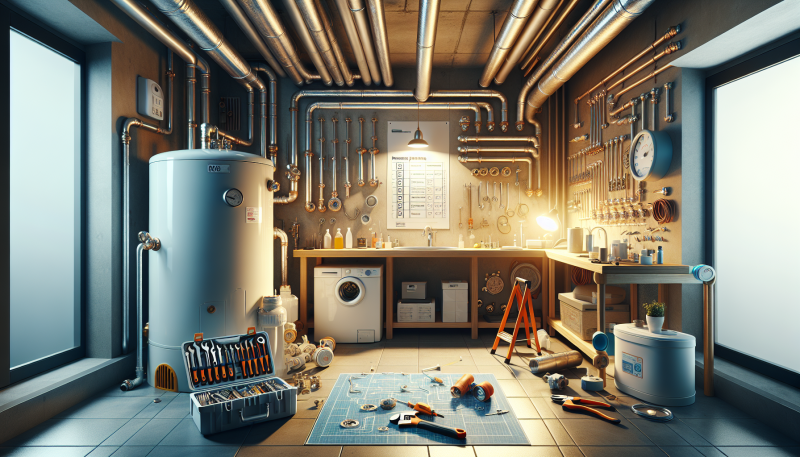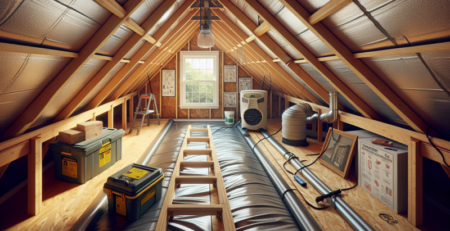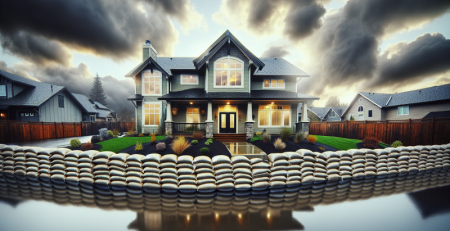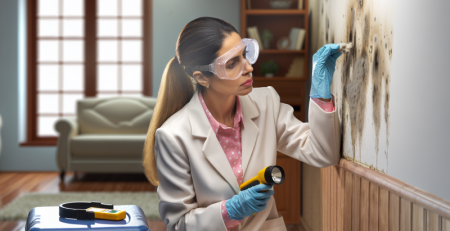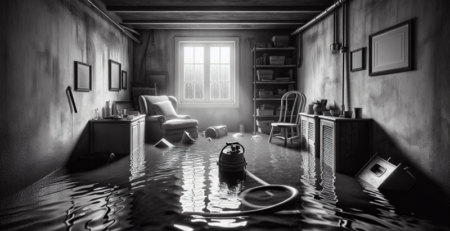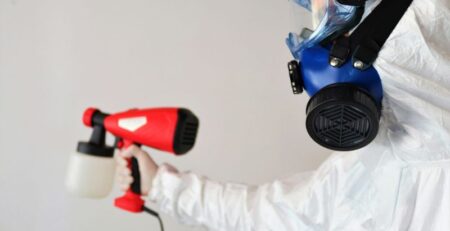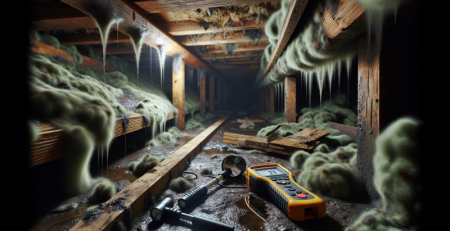How to Maintain Your Home’s Plumbing System
**How to Maintain Your Home’s Plumbing System** is a crucial topic for every homeowner. Have you ever wondered how a well-maintained plumbing system can save you from costly repairs and water damage? Understanding the basics of plumbing maintenance can empower you to keep your home safe and efficient, ensuring that your plumbing works seamlessly for years to come.
Regular inspections, prompt repairs, and preventive measures are key to maintaining your plumbing system. Simple tasks like checking for leaks, cleaning drains, and monitoring water pressure can make a significant difference. Experts recommend scheduling professional inspections at least once a year to catch potential issues before they escalate.
But these are just the starting points for effective plumbing maintenance. Dive deeper into this guide to discover essential tips and tricks that will help you protect your home from plumbing disasters. With insights from industry professionals, you’ll learn how to keep your plumbing in top shape and avoid the headaches of unexpected repairs. Let’s get started!
Understanding Your Home’s Plumbing System
A home’s plumbing system consists of several key components, including pipes, fixtures, and appliances. Pipes transport water throughout your home, while fixtures like sinks and toilets provide access to that water. Appliances, such as dishwashers and washing machines, rely on this system for efficient operation.
Understanding the difference between supply and drainage systems is crucial. The supply system delivers fresh water to your fixtures and appliances, ensuring you have access to clean water. In contrast, the drainage system removes wastewater from your home, directing it safely away from your living space.
Knowing your plumbing layout is vital for effective maintenance. Familiarity with the location of pipes and fixtures helps you identify potential issues early. For instance, if you notice a leak, understanding your system allows you to act quickly. Regular maintenance can prevent costly repairs and extend the life of your plumbing. To learn more about maintaining your home, visit our services page. Additionally, if you need assistance, don’t hesitate to contact us for expert advice.
Regular Maintenance Practices
To keep your plumbing system in top shape, perform routine maintenance tasks regularly. Start by checking for leaks around pipes and fixtures. Inspect faucets and toilets for any signs of dripping or water accumulation. Schedule these inspections monthly to catch issues early. Additionally, conduct a more thorough inspection every quarter. This includes examining water heaters and sump pumps for proper function.
Cleaning drains is essential to prevent clogs. Use natural cleaners like baking soda and vinegar to break down buildup. Avoid pouring grease or food scraps down the sink, as these can lead to blockages. For best results, clean your drains monthly.
Finally, perform a comprehensive plumbing inspection annually. This allows you to identify potential problems before they escalate. By adhering to this maintenance schedule, you can ensure your plumbing system operates efficiently. For more information on our services, or to learn about our residential design projects, feel free to reach out.
Identifying Common Plumbing Issues
Homeowners often encounter various plumbing problems that can disrupt daily life. Leaks are among the most common issues. You might notice water stains on ceilings or walls, indicating a hidden leak. Additionally, clogs can cause significant inconvenience. If you experience slow drainage or gurgling sounds, a blockage may be present. Low water pressure is another frequent concern. If your faucets deliver a weak stream, it could signal a deeper issue.
To recognize these signs, pay attention to unusual noises. Banging pipes or hissing sounds can indicate trouble. Furthermore, check for damp spots around fixtures, which may suggest leaks. If you suspect a clog, try using a plunger or a drain snake to clear minor blockages. For low water pressure, inspect your faucet aerators and showerheads for buildup. Cleaning these components can often restore normal flow.
If these troubleshooting tips do not resolve the issue, consider reaching out to a professional. For more information on plumbing services, visit our services page. You can also learn about our about us section for more insights.
Seasonal Plumbing Maintenance
Maintaining your plumbing system throughout the seasons is crucial for preventing costly repairs. During winter, it’s essential to winterize your pipes. Insulate exposed pipes and disconnect outdoor hoses to prevent freezing. Additionally, check outdoor faucets for leaks and ensure they are properly drained.
In spring and fall, perform routine maintenance to keep your plumbing in top shape. Create a checklist that includes inspecting for leaks, testing sump pumps, and cleaning gutters. These tasks help avoid water damage and ensure proper drainage.
Weather changes can significantly impact your plumbing. For instance, heavy rains can lead to flooding, while freezing temperatures can cause pipes to burst. To mitigate damage, consider installing backflow valves and ensuring proper drainage around your home. Regularly inspect your plumbing system to catch potential issues early.
For more information on how to protect your home, visit our about page or explore our services. If you need assistance, don’t hesitate to contact us.
Water Heater Maintenance
Regular maintenance of your water heater is crucial for optimal performance and longevity. A well-maintained unit operates efficiently, saving you money on energy bills. To begin, flush your water heater at least once a year. This process removes sediment buildup that can affect heating efficiency. First, turn off the power and cold water supply. Then, connect a garden hose to the drain valve and direct it to a floor drain. Open the valve and let the water flow until it runs clear.
Next, check the anode rod. This component prevents corrosion inside the tank. To inspect it, turn off the power and water supply, then remove the rod from the top of the tank. If it’s less than 1/2 inch thick or heavily corroded, replace it.
Be aware of signs that indicate your water heater may need repair or replacement. Look for leaks, unusual noises, or inconsistent water temperatures. If you notice any of these issues, consider consulting a professional. For more information on our services, or to learn about our company, feel free to reach out.
Preventive Measures to Avoid Major Repairs
To maintain your plumbing system effectively, consider several preventive measures. First, installing water softeners can significantly reduce mineral buildup in pipes. This simple addition helps extend the lifespan of your plumbing. Additionally, using drain screens prevents debris from clogging your drains. These screens act as a barrier, catching hair and food particles before they cause blockages.
Regular professional inspections are crucial. They allow experts to identify potential issues early, saving you from costly repairs later. A trained technician can spot leaks, corrosion, or other problems that may go unnoticed. Consequently, this proactive approach ensures your plumbing remains in optimal condition.
Moreover, creating a plumbing emergency plan is essential for every homeowner. Start by identifying the main water shut-off valve and ensure all family members know its location. Next, keep a list of emergency contacts, including your plumber and local emergency services. By preparing in advance, you can respond quickly to any plumbing crisis. For more information on maintaining your home, visit our about page or explore our services.
Eco-Friendly Plumbing Practices
Implementing eco-friendly plumbing solutions offers numerous benefits for homeowners. Low-flow fixtures significantly reduce water consumption without sacrificing performance. Additionally, rainwater harvesting systems provide an excellent way to collect and reuse water for irrigation and other non-potable uses. By adopting these practices, you not only conserve precious resources but also contribute to environmental sustainability.
To further reduce water usage, consider simple tips like fixing leaks promptly and using water-efficient appliances. Regularly check your plumbing for any signs of wear or damage. Moreover, installing aerators on faucets can help minimize water flow while maintaining pressure. These small changes can lead to substantial savings over time.
Ultimately, eco-friendly plumbing practices can save you money in the long run. Lower water bills and reduced energy costs from efficient systems can significantly impact your budget. By investing in sustainable solutions, you enhance your home’s value and promote a greener lifestyle. For more information on how to improve your home’s plumbing, visit our about page or explore our services.
When to Call a Professional
Recognizing when to call a professional plumber is crucial for maintaining your home’s plumbing system. Major leaks can cause extensive damage, leading to costly repairs. If you notice water pooling in your basement or walls, don’t hesitate to seek help. Additionally, sewer issues, such as backups or foul odors, require immediate attention. These problems can pose health risks and should not be ignored.
Hiring licensed plumbers ensures that you receive quality service. Licensed professionals have the training and experience to handle complex plumbing issues safely and effectively. They also understand local codes and regulations, which is vital for compliance.
When choosing a reliable plumbing service, consider a few key factors. First, check online reviews and testimonials to gauge customer satisfaction. Next, ensure the company offers a range of services to address various plumbing needs. Finally, ask for estimates and compare prices to find a service that fits your budget. By taking these steps, you can secure the best plumbing assistance for your home.
Frequently Asked Questions
When it comes to plumbing maintenance, many homeowners have questions. One common query is, "How often should I check my plumbing?" Ideally, you should inspect your plumbing system at least once a year. Regular checks help identify potential issues early.
Another frequent question is, "What should I do if I have a leak?" First, turn off the water supply to prevent further damage. Next, assess the situation and consider contacting a professional for repairs. Quick action can save you from costly repairs down the line.
Homeowners often wonder, "How can I prevent clogs in my drains?" To avoid clogs, be mindful of what you put down your drains. Regularly clean your drains and consider using a drain strainer.
If you have more questions, don’t hesitate to seek further information. You can explore our about page for more insights. Additionally, our services section offers detailed information on plumbing solutions. For immediate assistance, visit our contact page.
Conclusion and Final Tips
In summary, maintaining your home’s plumbing system is essential for preventing costly repairs and ensuring smooth operation. Regular inspections and timely repairs can save you from major headaches. Additionally, keeping an eye on your water pressure and being mindful of what goes down your drains are crucial steps.
For optimal plumbing health, consider scheduling professional maintenance at least once a year. This proactive approach can catch issues before they escalate. Furthermore, always be cautious with chemical drain cleaners, as they can damage pipes over time. Instead, opt for natural solutions or consult a professional for stubborn clogs.
Finally, remember that your plumbing system is a vital part of your home. Taking these simple steps can lead to long-term benefits. If you need assistance, don’t hesitate to reach out. For more information about our services, or to learn about our company, visit our website. Taking action now will ensure your plumbing remains in top shape for years to come.
